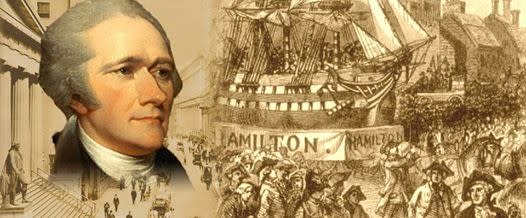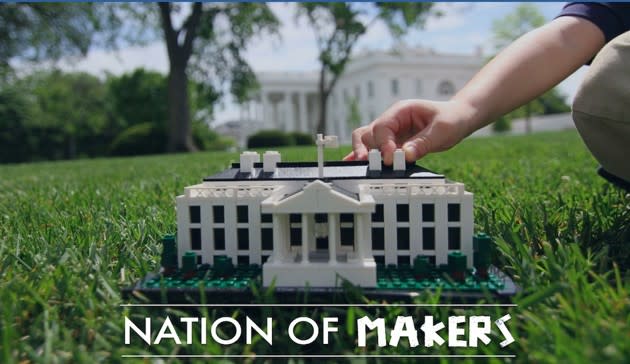The Maker Movement: If Hamilton Were Around, He Would Be a Fan

The previous two installments in this series, “The Tools Revolution” and “Agility,” of course concentrated on the private businesses, large and small, and the entrepreneurs who have created and applied the tools that are changing manufacturing in a way parallel to what the internet era has done for (and to) the creation and dissemination of ideas.
But just about every complex achievement has a complicated back story. In their recent book American Amnesia: How the War on Government Led Us To Forget What Made America Prosper, Jacob Hacker of Yale and Paul Pierson of Berkeley underscore what any honest look at economic history reveals. Namely, that the great eras of economic advancement, from England during the first modern industrial revolution, to the versions of that achievement in Germany and the United States and Japan, to the transformation of post-Mao China, have involved public efforts that promote, support, and encourage private economic innovation.
Recommended: Why the Stanford Judge Gave Brock Turner Six Months
In modern China’s case, the government’s major role for better (and worse) has been obvious. Similarly with the 20th century rise of Japan and Germany — and England through its era of most rapid growth as well, for those who have actually read Wealth of Nations and know that it is something quite different from a libertarian tract. This is a case I tried to lay out in detail long ago in an Atlantic story called “How the World Works,” which is online.
For now I’ll skip the rest of the argument about how public/private interactions have been so much more fruitful than either alternative: pure statism, or entrepreneurs without the benefit of public investment (for instance, in medical sciences, agriculture, aerospace, info-tech in America), public education, public infrastructure, public rules of fair competition, and so forth. I direct you instead to the Hacker and Pierson book — or to a musical you might have heard of, called Hamilton.
Instead I’m using the occasion of tomorrow’s kickoff of the National Maker Week, at the White House, to note some of the public ways in which city, state, and national institutions have been encouraging the private I’ve mentioned and will describe in further installments.
***
1) From the White House. You can read about the “Nation of Makers” events that kick off on June 17 here. If the current administration were Republican, its support for small-scale entrepreneurs involved in tangible manufacturing would seem natural. Since the current administration is not Republican, I take its support as a sign that maybe — God willing? — we might actually have a case of agreement on practical economic advancement for Americans, beyond the normal national-level paralysis. Maybe?
Please let me dream for a minute.

***
Read more from The Atlantic:
This article was originally published on The Atlantic.
